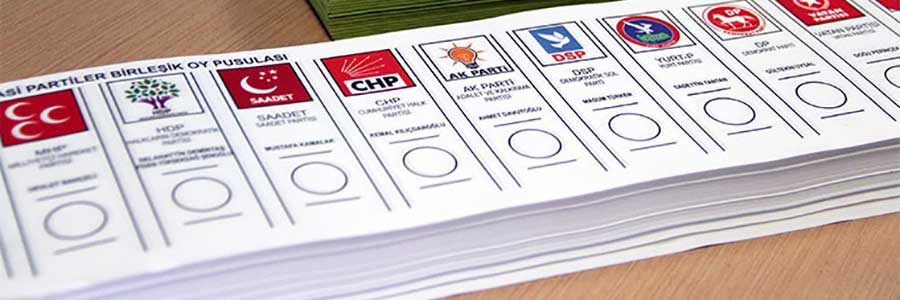Elections in Turkey

The Turkish Constitution defines the election system. Elections in Turkey are held according to a proportional representation system in a single stage in accordance with the principles of general, equal, secret and direct voting, universal suffrage, public counting and tally of the votes. Every province is an electoral milieu and every ward is a precinct.
A 10% nationwide threshold is practiced in elections. Those political parties failing to receive at least 10% of the valid votes throughout the country in general elections, and throughout an electoral milieu in by-elections, cannot be represented in the parliament. The d’Hont method applies for the distribution of deputies among the parties according to the election results.
Description of government structure
President: President Recep Tayyip Erdoğan
Prime Minister: Prime Minister Binali Yıldırım
Assembly: Turkey has a unicameral Grand National Assembly of Turkey (Turkiye Buyuk Millet Meclisi) with 550 seats.
Description of electoral system:
The President is elected by absolute majority vote through a two-round system to serve a 5-year term. Candidates must be members of the Grand National Assembly supported by 20 of its members, or nominees by political parties that have attained more than 10 percent of votes in the last legislative election. Candidates must be 40 years of age and have completed higher education.
The Prime Minister is appointed by the President.
In the Grand National Assembly of Turkey 550 members are elected through a closed-list proportional representation system to serve 4-year terms. There are 79 MMD corresponding to the provinces. Each party must clear a national threshold of 10 percent and at least one D'Hondt quotient in the district from which it is elected. Additionally, a candidate may be seated only if his party is organized in one-third of districts within each of half of the provinces, and has nominated two candidates for each seat in at least half of provinces.